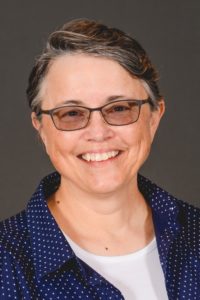
Finding a Rhythm to Walk In
"We are all wanderers on this planet.”[1]
In my wanderings through the written word over the last month, I met the American poet Robert Lax (1915-2000). For a time his greatest claim to fame was his deep and lasting friendship with the Trappist monk Thomas Merton, yet Lax’s contributions as a poet are being unearthed. Lax’s work in and of itself did not receive much recognition within his lifetime--with the exception of the poem Circus of the Sun, a reflection on creation from the metaphorical viewpoint of his circus experience. Late in his life, Lax began writing aphorisms, one of which I came across twice in my wanderings.
Michael N. McGregor, author of the biography, Pure Act: The Uncommon Life of Robert Lax, writes that Lax “sent an aphorism to his friend the artist Nancy Goldring that beautifully summarized how [Lax] had come to see his—and maybe everyone’s—task in life: ‘not so much finding a path in the woods as finding a rhythm to walk in’.”[2] This is indeed food for thought as we each meditate on Whose we are and who we are becoming as Beloved.
I think this vital wisdom plays a critical role for us as theological educators and, perhaps even more so, as online theological educators. Many students come to us seeking what they need to know to spread the Gospel and asking what’s the path of Truth. Yet that is not ours to give. What is important is to help students find a rhythm to walk in so that within their journey they can contribute of themselves to building the Reign of God.
It is not so much finding a path . . . as finding a rhythm to walk in.
At a very practical—incarnational—level, I imagine many can relate to the need and importance of understanding expectations in much of what we do and to which we belong: jobs, sports, church, and family. Having that understanding provides the parameters of our being in those particular ecologies and relationships. However these expectations, while sometimes made explicit, are often communicated in subtle ways: the raising of an eyebrow from a colleague or a side glance at the end of a meeting from a supervisor, or an unscheduled conversation between parent and child in the kitchen over ice cream during the late hours. Without these face-to-face cues and moment-to-moment interactions—such as when we are in online learning environments—setting expectations and developing a rhythm of being is of utmost importance.
As a neophyte of online pedagogy what I find most helpful to students, in addition to setting global course and assignment expectations, is to clearly delineate a way of being as community, i.e., to develop an ecology of being or a rhythm to walk in together. By this I mean, setting expectations for their relationships as learning colleagues.
To do this, I frame our week in prayer, provide a weekly study guide and adhere to regular time frames. The importance of weekly communal prayer is discussed at length in an earlier blog: https://www.wabashcenter.wabash.edu/2018/09/needling-students-to-authenticity/. Suffice it to say, prayer helps us—myself included—to “hold the tensions [we experience in the learning environment] as we deepen into greater self-awareness supporting one another in mutual learning and growth.”
The weekly study guide provides a map for the week’s hopes and learning activities. It includes the weekly learning objectives and delineates step-by-step what needs to be accomplished with prompts such as: view the prayer video, view the introduction video, read X, Y and Z, attend to these questions as you read, online discussion instructions, and begin your research. Yes, I do have the module set up with each piece in logical progression, yet my experience is that students find the study guide itself supportive for learning. It provides a sense of security and helps students find their own rhythm of study within that structure.
Finally, adhering to regular time frames is imperative. Regular time frames include the times for opening of a module, for online discussions, and for professor feedback. Our weeks of study run from Sunday at 7:00 pm (Central) to the following Saturday at 11:59 pm. Modules for the upcoming week’s materials open each Saturday at noon. This promotes focus on the week’s topic at hand and allows for students to plan their rhythm of study for the next week before it officially begins. Online discussions usually take two forms—for example, leader/summary or original/final word—and follow regular posting times such as: the leader posts by Wednesday, 11:59 pm; discussion occurs until Saturday at noon; and the summary post is due Saturday, 11:59 pm. Content and length expectations of the various posts are described in the weekly study guide. Expectations are important, and perhaps even more so are the feedback received by the student on her work. Critical feedback from the professor within two weeks provides students the opportunity to adjust their rhythms; perhaps they need to take more time reading, integrating, ferreting out important distinctions, or engaging their peers in substantive ways. Growth can occur and energies adjusted if students are provided regular and timely feedback.
It is not so much finding a path . . . as finding a rhythm to walk in.
Guiding students to operate from a regular rhythm in the online environment provides the support students need to develop their own rhythm of study. Guiding students to walk in a regular rhythm provides students the freedom to be; to engage ideas and one another—which is where their focus needs to be. Guiding our students into a rhythm will not necessarily help them find the path of Truth, but perhaps to discover their own rhythm as they wander on this planet and create a path by which they live more deeply into the Truth.
[1] Michael N. McGregor, Pure Act: The Uncommon Life of Robert Lax (New York: Fordham Press, 2015): 378.
[2] McGregor, Pure Act, 381.
Leave a Reply